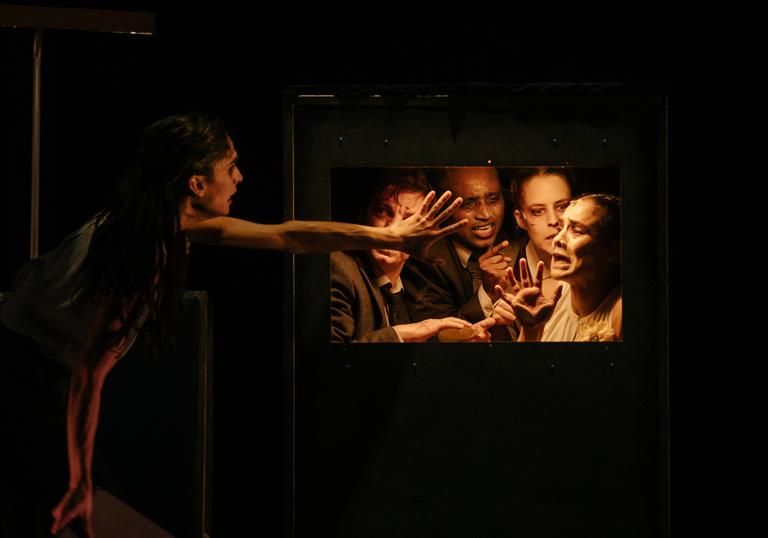The Wedding is a physical theatre piece that explores the relationship between individual power and societal structures, on our stage Tues 7 – Sat 11 June 2022, and we wanted to learn more about the themes and processes behind the exhilarating production.
How was this show created? What were your biggest influences?
Amit: The Wedding was created over a span of four years. It came from feelings of anger and the sense that as a citizen I feel disempowered, the contract that binds us is being altered, rigged in a way that removes power and agency from individuals, from human beings, from citizens. Combined with this there is an innate sense of hope and belief that this power can be reclaimed and that communities can thrive.
What is the narrative journey of the show?
Ryen: We are all born into some contractual agreement within society, the narrative of the show then showcases different versions of this agreement through various personal journeys.
Can you tell us more about where and when The Wedding is set?
Amit: The Wedding is set now, and is always set now. In this time when the struggle to belong and connect is meaningful - which is now. The immigrants are a family who exist on the forestage of each and every theatre we play. Their difficult situation plight is universal and urgent and so we set their world on the theatre fore-stage, and they address the audience directly.
What does the show say about the world we live in today?
Madeleine: The themes of the show will always be relevant because it’ will always be important to not blindly follow and not fall into a routine system without being critical and questioning it. You need to always question those in power, the political system or even how your school is being run.
What role does sound and language play in The Wedding?
Amit: Sound is one of 5 equally important devices used to carry the narrative of the show; sound/music, choreography, character scenes, scenic design, lighting, all five share an equal responsibility. and are all telling the same story. Each is vital. The sound in the show aims to evoke elicits emotion at each and every moment. The spoken languages in the show are another important texture – they enable the performers to express their humanity and their intentions.
What is it like to work in such a collaborative way as part of this ensemble?
Mario: I really like working as part of this ensemble as you can develop the ideas at the same time as understanding the show, not only in the logical way but also within your character and their journey. To work like this is to understand it as a performer and find your expression whilst developing the show.
How would you like audiences to feel when they leave the theatre?
Miguel: I like the audience to leave feeling packed with emotions, slightly confused and overwhelmed but curious to unravel why they feel that way. They should have a feeling of being perplexed. The show has so many different emotional levels and I want the audience to have travelled to all of those places with us. I want them to be constantly thinking about the show in the days that follow.
What has surprised you most about the audience response to The Wedding?
Saju: I see someone in tears at the end of every single show and I have not experienced that deep of an emotional response consistently before. At the end of the show the performers are also in an emotionally charged mental space. It’ is amazing to connect with the audience like this and it is constantly surprising for me.

